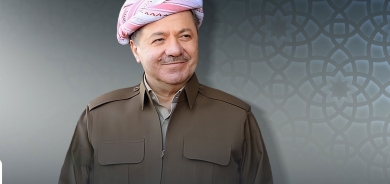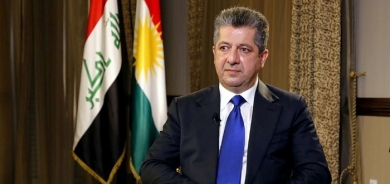Christoph Haug to Gulan Magazine:It is civil society and social movements that are pushing the state to do implement progressive policies
May 15, 2012
Exclusive Interviews

Christoph Haug is Postdoctoral research fellow in the Department of Sociology / GCGD at the University of Gothenburg. We contacted the Professor Haug to discuss the factors of good societies and the motivations by people in building active societies, and the Professor Haug responded to our questions in an exclusive interview to Gulan Magazine as the following:* Active society is the outcome of government's active policy, because active policy encourages development of activity and self-dependent society. According to your opinion; what should be the policy of the government in order to produce active society?
- As a sociologist, I beg to disagree with your question. I don’t believe that an active society needs a government to be born. I would consider that perspective a top-down approach, meaning that the state activates its citizens to actively contribute to a common purpose, and that purpose is then usually that of the state or the politicians that control it. Another approach, which I find much more intriguing, would be a bottom-up approach, in which citizens organize in smaller units to further their interests and to build a consensus of what they want to do together. Whether these collectivities want or need a state that activates them or tells them what to do, is an open question and the answer will depend much on the situation in which these people find themselves. If you look at different countries around the world, you will almost always find that, in practice, it is civil society and social movements that are pushing the state to do implement progressive policies to help improve the lives of ordinary people, not the other way around. In fact, when society becomes too vibrant and to active, the state usually tries to curb that activity, often by violent means.
So to try and answer your question then – what should the government do? – I would say that it should encourage and protect the creation of civil meeting spaces where the residents of a country can share experiences, identify common problems and develop solutions to these problems, which might then be implemented with the help of state authorities. To be more concrete: the state should guarantee freedom of speech, freedom to organize and strike, and so on. Basically, to respect human rights. Furthermore, it should refrain from trying to create a unitary society, a society in which it is the citizen’s obligation to further the national interest or some other imaginary purpose that supposedly benefits all. Why is this dangerous? Because there are always conflicts of interest and to pretend that “we’re all in this together” basically means that you are telling minorities to shut up and let the majority lead the way. So to cut a long story short: I think that protect free and even oppositional spaces to exist and to decentralize decision-making as much as possible are at least two things a government can do to help foster an active society.
* Some experts think that the foundation stone of active society is pursuing workfare program policy; this means that the government should prepare a ground for every individual to participate and to be activated within the working market. So, how is it possible to re activate the ignored individuals of the society?
- I am very skeptical regarding the long term effects of workfare programs. The problem with this idea, that all those unemployed individuals just need to be pushed a little bit and then they will pull themselves together and find a job, is that it ignores the fact that there is simply not enough work. So while workfare blames the individual for not being active enough, what is really needed are fundamental structural changes in the way the economy works. And what I mean by that is, for example, less marketization and more regulation of markets, especially the financial markets which have been and still are wreaking havoc, first in the developing countries and now in the US and Europe. Isn’t it ironic that governments around the world willingly spend billions of taxpayer’s money to save banks and bankers while simultaneously cutting social welfare for the poor and poorest? In such a context, workfare programs seem quite cynic to me. And I don’t see how such programs are going to effect any structural change that might mitigate the increasing gap between the rich and the poor. Quite the contrary: the purpose of workfare programs is to prevent social change by keeping people busy and sustaining the idea that only who works can contribute to society and hence only who works is entitled to social benefits. If you ask me what should be done to activate “the ignored individuals”, I would say: find ways to introduce unconditional basic income grants for everyone.
* In the classical welfare states, in terms of working there was difference between male and female salaries. So we can't say active society means welfare society, because in active society individuals should be motivated equally for working. So, according to your opinion how government can play an important role within this aspect?
- Obviously, men and women should earn the same salary for the same work. One might add that men should be engaged in household work to the same degree as women, because otherwise women will still work more, even if they earn the same salary. But as you might have guessed from my previous answer, I disagree with the idea welfare necessarily gets in the way of active society, especially when it comes to gender equality. There are many problems with the welfare state, which often incapacitates them through its paternalistic stance. Others have pointed out that the welfare state created new inequalities, especially that between migrant labour and “native” labour. So the fact that many more women are employed today than some decades ago does not mean that the inequalities on the labour market have been eradicated. It is just different people, often migrants, who have to do take the badly paid jobs and do the hard or dirty work. If people had the right to a basic income, they could not be forced to take such jobs, or differently said: employers would have to pay decent salaries in order to find workers. I’m not sure if I’m making sense, but what I’m aiming at is that we need to start rethinking our idea of the welfare society in a way that is different from both the traditional welfare state and the neoliberal workfare state in that it no longer defines labour as they key entry point into the welfare system. This comes along with a change of identity of “the worker” as well as our idea of how paid work relates to other types of active engagement with society. So, I’m afraid I can’t provide a concrete policy but rather a direction into which I think governments (as well as civil society) should be heading.
* According to the statistics of international community, active society is the only way of combating poverty. In this situation the individuals should be given opportunities in order to learn volunteering and social participations, to be concerned about himself and his family. So, how is it possible to prepare such a ground?
- I am not sure what which statistics you are referring to. I think there is no agreement in the “international community” as to what is the best way to combat poverty. But I agree with you that individuals should be given those kinds of opportunities. I am not a social worker who might tell you how to do this, but what I see currently is that none of this is happening. Across the globe, the trend is going in the opposite direction. Those individuals who have been left behind and excluded from society are now being met by the police, not by social workers. Few governments are interested in empowering the poor and disadvantaged; instead they criminalize them and put them into jail so that they don’t cause more problems. So I think a lot of social activism is necessary here to turn this global trend.
* In order to maintain balance of market monopoly and social activity, sometimes it leads to government to change its policy and to intervene in some cases so as to avoid ignorance by the people. To what extend government intervening is important in such cases?
- I am not sure if I understand your question correctly, but if you are suggesting that the governments sometimes needs to intervene into the so called “free market” to the benefit of weaker actors who need to survive but may not be able to compete with stronger competitors or who might not be able to buy the services they need at a market price, then I agree with you. As I have said earlier, the re-regulation of markets is important and I even believe that the privatization of public services needs to be reversed wherever possible. But while you and I might agree that governments should intervene to that effect, the reality is that it was governments that have caused the problems in the first place, when they advocated – and implemented! – the privatization of basic services such as water, sanitation, housing, health, education, but also financial services where they were provided by state owned banks. And even the military and prisons are increasingly being privatized. So even if the people do not want such commodification, we have a long way to go until we see the end of these policies and state interventions to the benefit of ordinary people rather than a socio-economic elite of bankers and managers who are profiting from all this mess.
* Last Question: Active society means the society of working and rule of law. So, to what extend active society is a factor for reducing and combating corruption especially within the societies of high rate of corruption?
- I have just arrived back from two months of fieldwork in South Africa and the level of corruption there is appalling. And that is just one example in many. In fact, the majority of states in the world have little similarity to the ideal of the representative liberal state that is being propagated in the West. I am not an expert on anti-corruption policies, but I agree that active civil society, social movements, as well as individual whistle blowers can play a key role in challenging corrupt practices and hold official accountable. Obviously, you need freedom of press for that and that is why in South Africa the government is currently pushing through a “secrecy bill” that is officially meant to safeguard state interests and national security, but which will effectively silence whistle blowers and undermine investigative journalism by threatening journalists who publish certain information. Ironically, one of the effects of this endeavour has been the formation of a broad civil society campaign, the Right to Know campaign, which is supported by very diverse actors, from shack dwellers who want to expose corruption in the housing department to journalists and academics, who fear that they will not be allowed to write the truth any longer if the bill becomes law. This is just an example that I happen to know. But it illustrates that corruption is indeed being challenged and that this challenge is in turn met my state oppression.
So in a way, we are back to your first question about the state’s role in activating society. As I said: most of the time, society is already very active and the state doesn’t like that. The state usually wants society to be active in a way that furthers the interests of the political and economic elite, for example by making people work for very little money, but when people become actively opposed to some of those policies, then the state tries to de-activate these people.















